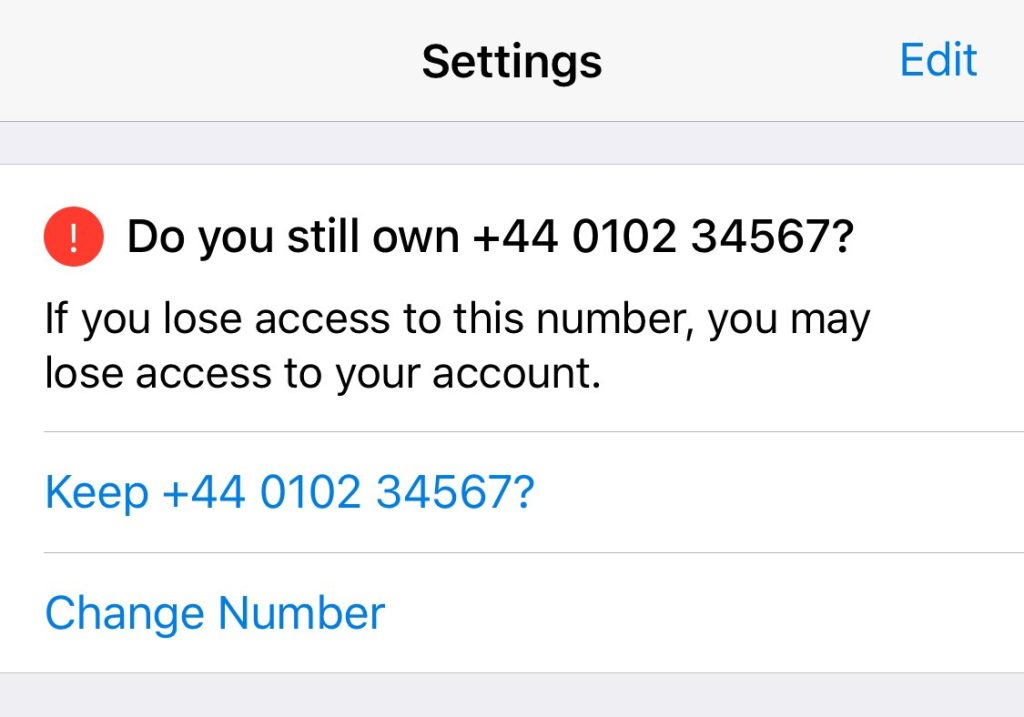No, you do not need ID to use Trust Wallet. It does not require personal identification for registration or use.
Understanding Trust Wallet’s Registration Process
Registration Requirements
Trust Wallet is designed for ease and privacy, requiring minimal information:
- No ID Verification: Users do not need to provide personal identification.
- Device Compatibility: Available for iOS and Android devices.
- Internet Connection: Needed to download the app and interact with the blockchain.
- Storage Space: Ensure sufficient space on your device.
Steps to Create a Trust Wallet Account
Creating an account is straightforward:
- Download the App: From the App Store (iOS) or Google Play Store (Android).
- Open the App: Launch Trust Wallet on your device.
- Create a New Wallet: Select the option to create a new wallet and accept the terms of service.
- Backup Recovery Phrase: Save the 12-word recovery phrase securely.
- Confirm Recovery Phrase: Verify the phrase by selecting the words in order.
- Set a Password: Create a strong password for added security.
- Start Using Trust Wallet: Manage, send, and receive cryptocurrencies.

Anonymity and Privacy with Trust Wallet
How Trust Wallet Ensures User Privacy
Trust Wallet implements several measures to ensure user privacy:
- No Personal Information Required: Trust Wallet does not require users to provide personal identification or sensitive information, maintaining user anonymity.
- Local Storage of Private Keys: All private keys are stored locally on the user’s device, ensuring that Trust Wallet never has access to them.
- Encryption: Trust Wallet employs advanced encryption techniques to protect data stored on the device.
- Decentralized Architecture: The wallet operates on a decentralized network, reducing the risk of centralized data breaches.
Benefits of Using a Wallet Without ID Verification
Using a wallet that doesn’t require ID verification offers several advantages:
- Enhanced Privacy: Users can manage their cryptocurrencies without revealing personal information, reducing the risk of identity theft.
- Quick Setup: The absence of ID verification simplifies the registration process, allowing users to start using the wallet immediately.
- Global Accessibility: Users from regions with strict regulatory environments can still access and use Trust Wallet without barriers.
- Reduced Risk of Data Breaches: With no personal data stored on servers, the risk of data breaches is significantly minimized.
Comparing Trust Wallet with Other Wallets
ID Requirements in Other Cryptocurrency Wallets
Many cryptocurrency wallets have different ID verification requirements. Here are some common practices:
- Mandatory ID Verification: Wallets like Coinbase and Binance require users to complete Know Your Customer (KYC) procedures, including providing ID documents and personal information.
- Partial Verification: Some wallets, such as Blockchain.com, offer limited services without ID verification but require it for higher transaction limits and additional features.
- No Verification Required: Wallets like Exodus and Electrum do not require ID verification, similar to Trust Wallet, focusing on user privacy and ease of access.
Advantages of Trust Wallet’s No-ID Policy
Trust Wallet’s no-ID policy offers several benefits, making it an attractive choice for users:
- Enhanced Privacy: Users do not need to share personal information, reducing the risk of identity theft and data breaches.
- Quick and Easy Setup: The absence of ID verification allows users to set up and start using the wallet immediately.
- Accessibility: Users from countries with strict regulatory environments or limited access to identification documents can still use Trust Wallet.
- Reduced Administrative Overhead: Without the need for ID verification, Trust Wallet can streamline its operations and focus on enhancing user experience and security.

Security Measures in Trust Wallet
Encryption and Private Key Management
Trust Wallet employs robust security measures to protect user data and funds:
- Advanced Encryption: All data, including private keys and transaction information, is encrypted using industry-standard encryption techniques to prevent unauthorized access.
- Local Storage of Private Keys: Private keys are stored locally on the user’s device, ensuring that they are never exposed to external servers or third parties.
- Secure Backup: Trust Wallet provides a 12-word recovery phrase that users must securely store. This phrase allows users to restore their wallet in case of device loss or failure.
Additional Security Features
Trust Wallet includes several additional security features to further protect user assets:
- Biometric Authentication: Users can enable fingerprint or facial recognition to access their wallet, adding an extra layer of security.
- Password Protection: The app supports strong password creation to prevent unauthorized access.
- Transaction Alerts: Users receive real-time notifications for transactions, allowing them to monitor activity and quickly respond to any suspicious actions.
- Open Source: Trust Wallet’s code is open source, allowing for community audits and transparency, ensuring there are no hidden vulnerabilities.
- No IP Logging: Trust Wallet does not log IP addresses, enhancing user anonymity and privacy.

Using Trust Wallet Anonymously
Tips for Maintaining Anonymity
To use Trust Wallet while maintaining your anonymity, consider the following tips:
- Use a VPN: A Virtual Private Network (VPN) masks your IP address and encrypts your internet connection, enhancing your privacy when accessing Trust Wallet.
- Avoid Public Wi-Fi: Public networks can be insecure and susceptible to attacks. Use trusted and secure networks to access your wallet.
- Secure Your Recovery Phrase: Store your 12-word recovery phrase offline in a secure location. Avoid digital storage methods that could be hacked.
- Create Strong Passwords: Use complex, unique passwords for your wallet and associated accounts to protect against unauthorized access.
- Enable Biometric Authentication: Utilize fingerprint or facial recognition for an additional layer of security without compromising anonymity.
Privacy Best Practices
Adopting privacy best practices can further enhance your anonymity while using Trust Wallet:
- Regularly Update Software: Keep your Trust Wallet app and device software up to date to protect against known vulnerabilities.
- Disable Metadata Sharing: Ensure that any metadata or analytics sharing options are disabled in the app settings.
- Be Wary of Phishing Attempts: Always verify the authenticity of communications regarding your wallet and avoid clicking on suspicious links.
- Use Decentralized Exchanges (DEXs): When trading cryptocurrencies, use decentralized exchanges integrated with Trust Wallet to avoid sharing personal information.
- Limit Information Sharing: Avoid sharing details about your cryptocurrency holdings and transactions on social media or public forums.

Regulatory Compliance and Trust Wallet
How Trust Wallet Complies with Regulations
Trust Wallet adheres to various regulatory standards and best practices to ensure legal compliance while maintaining user privacy:
- Adherence to Data Protection Laws: Trust Wallet complies with data protection regulations such as GDPR (General Data Protection Regulation) to safeguard user information.
- Transparent Operations: Trust Wallet operates transparently, providing clear privacy policies and terms of service to inform users about data handling practices.
- Secure Transactions: Trust Wallet ensures that all transactions are secure and comply with relevant financial regulations to prevent fraud and money laundering.
- Decentralized Framework: By leveraging a decentralized network, Trust Wallet reduces reliance on central servers, aligning with regulations promoting decentralized finance (DeFi).
Impact of No-ID Policy on Compliance
Trust Wallet’s no-ID verification policy offers several benefits while still ensuring regulatory compliance:
- Enhanced Privacy: Users enjoy greater privacy without mandatory ID verification, which aligns with data protection principles that prioritize user consent and minimal data collection.
- Broader Accessibility: The no-ID policy allows individuals in regions with restrictive regulations to access cryptocurrency services, promoting financial inclusion.
- Regulatory Challenges: While the no-ID policy enhances privacy, it may pose challenges in jurisdictions with strict Know Your Customer (KYC) and Anti-Money Laundering (AML) requirements. Trust Wallet mitigates this by focusing on decentralized solutions and providing tools for users to ensure their compliance with local regulations.
- User Responsibility: Trust Wallet places the responsibility of regulatory compliance on users, advising them to adhere to their local laws and regulations when using the wallet.

User Experiences and Feedback
User Reviews on Trust Wallet’s Privacy Features
Users generally appreciate Trust Wallet’s strong emphasis on privacy and security. Here are some common points highlighted in reviews:
- High Level of Anonymity: Many users praise Trust Wallet for not requiring ID verification, which helps maintain their privacy and anonymity.
- User-Friendly Interface: The wallet’s intuitive design makes it easy for both beginners and experienced users to manage their cryptocurrencies without compromising security.
- Secure Private Key Storage: Users feel confident knowing that their private keys are stored locally on their device, protected by encryption and biometric authentication options.
- Transparent Privacy Policies: Trust Wallet’s clear and transparent privacy policies give users peace of mind about how their data is handled.
Common Concerns and Trust Wallet’s Responses
While Trust Wallet receives positive feedback, some users have concerns that the team has addressed:
- Concern: Potential Security Risks with No-ID Policy
- Response: Trust Wallet emphasizes the use of strong passwords, biometric authentication, and secure recovery phrases to mitigate security risks while maintaining user anonymity.
- Concern: Difficulty Recovering Wallet Without ID Verification
- Response: Trust Wallet provides a 12-word recovery phrase that users can securely store. This phrase is crucial for wallet recovery and emphasizes the importance of safeguarding it.
- Concern: Exposure to Phishing Attacks
- Response: Trust Wallet regularly educates users about recognizing phishing attempts and provides guidelines on how to avoid them. They also implement robust security measures to protect against such threats.
- Concern: Limited Customer Support
- Response: Trust Wallet has expanded its customer support resources, including detailed FAQs, support articles, and a responsive support team to assist users with their concerns.
